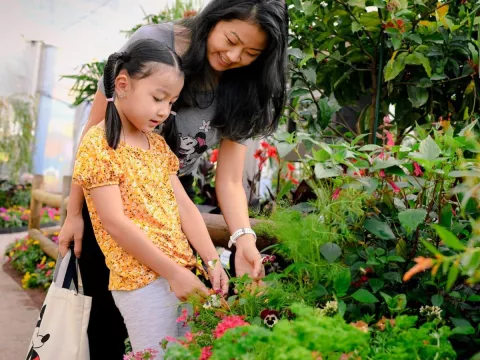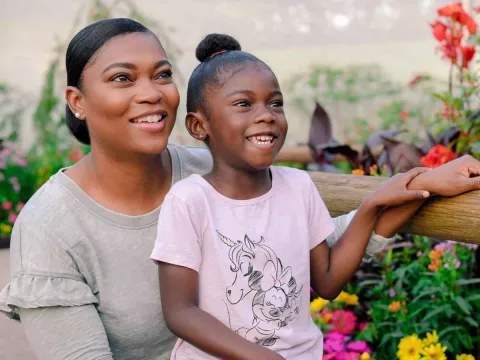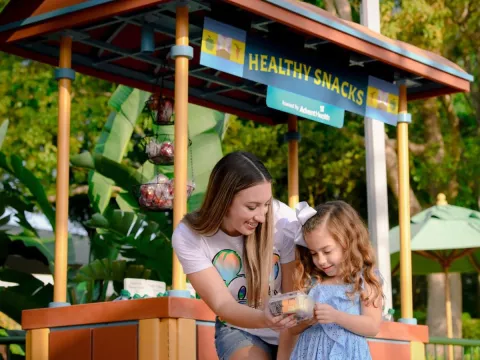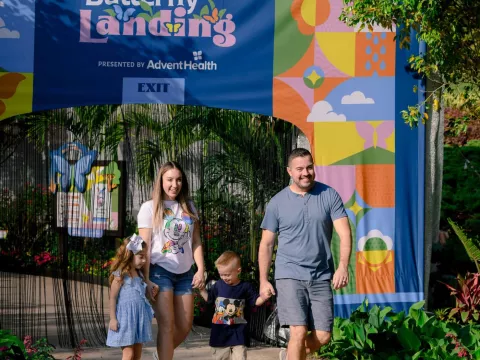.
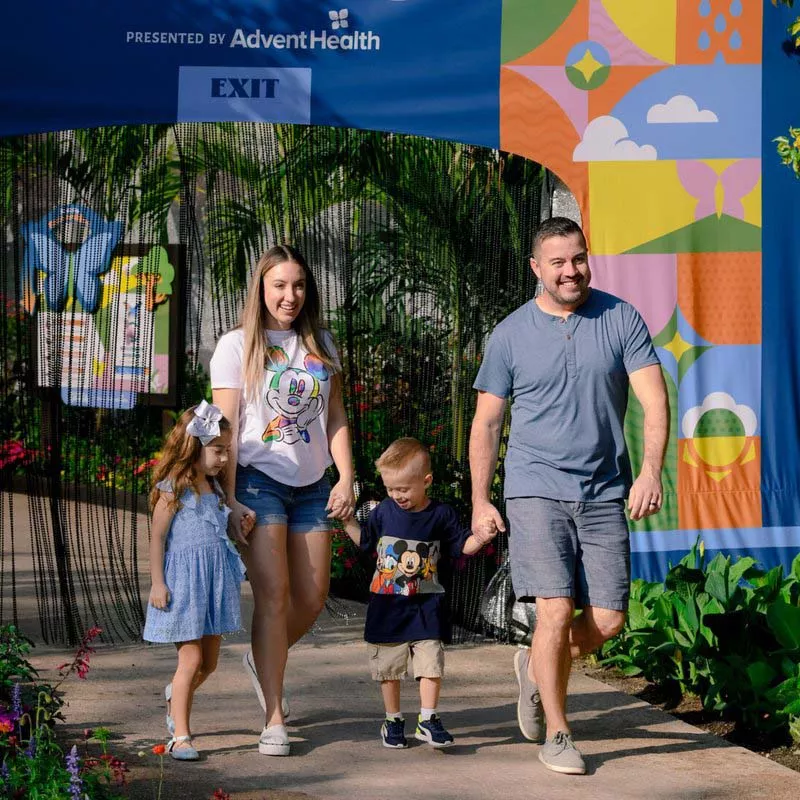
Enter the AdventHealth Butterfly Landing Experience Contest
Spending time outdoors can be rewarding in more ways than one. Tell us your favorite way to spend time in nature and how it benefits your well-being to enter for an opportunity to win four (4) one-day, one-park theme park tickets to Walt Disney World® Resort. The contest runs from April 18 through May 19, and one winner will be selected.
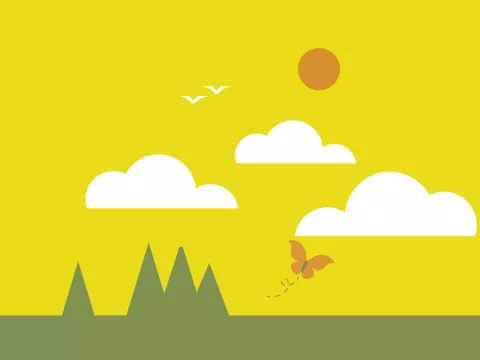
Experience Butterfly Landing
Spending time in nature is a great way to relax, rejuvenate and practice mindfulness — the art of living in the moment. As you walk through the garden at Butterfly Landing presented by AdventHealth, take a moment to notice all the living things around you, from the smallest butterfly to the tallest tree. Plus, see how many plants you know; there are two main types you might find our butterflies enjoying.
Host Plants and Herbs
Before they turn into butterflies, caterpillars need host plants for their food. Each species has a particular plant they like best, so you can choose your plants based on the kind of butterfly you’d like to attract. For example, monarchs love to munch on milkweed, while swallowtails prefer dill and parsley.
Nectar Flowers and Shrubs
Once their metamorphosis is complete, butterflies get their energy from drinking nectar. Some plants that provide this tasty drink include pentas, salvia and firebush.

Sowing the Seeds of Well-Being
Gardening is one of the best ways to experience the improved health and mood that outdoor living can bring. And it doesn't take a green thumb to reap these rewards — just a willingness to learn and a love of nature.
Pick Plants for Pollinators
If you plant colorful plants and flowers, you probably won’t be the only one hanging out in your garden! Pollinators like bees and butterflies might become frequent visitors, and these new friends can make your time outside even more special.
Enjoy the Fruits (and Veggies) of Your Labor
One of the best things about gardening is eating what you grow. Tomatoes and cucumbers are easy first plants, and they’re good for you, too. Plus, they can grow in pots, window boxes and the backyard.

Good Nature, Great Wellness
When it comes to the benefits of sunlight and fresh air, the sky is the limit. Whether you’re a country-lover or a city-dweller, spending time among the bees and butterflies can improve your memory, decrease stress and help you feel healthier and happier.
Add nature into your everyday life by making the outdoors your workday break room or scheduling your next catch-up with friends at a local park. You’ll soak up vitamin D from the sun, breathe in clean air and feel re-energized for the rest of your day.
Horticulture Therapy for the Whole You
This unique therapy uses natural environments to enhance your overall health and wellness. Horticulture therapy has wonderful benefits for the body, mind and spirit, like:
Cognitive Benefits
- Encourages observation
- Increases attention span and knowledge
- Increases vocabulary
- Stimulates memory
- Teaches new skills
Physiological Benefits
- Lowers blood pressure
- Lowers cortisol levels
- Lowers heart rate
- Relieves stress
Physical Benefits
- Develops or increases fine and gross motor skills
- Increases activities of daily living (ADL) skills
- Increases eye-hand coordination
- Provides exercise
Social Benefits
- Increases communication skills
- Increases interaction within and outside of a group
Emotional Benefits
- Increases feelings of self-worth, confidence and self-esteem
- Promotes creativity, interest and enthusiasm
- Relieves aggression and tension
Unused
- Unused
Ready to get outdoors? On our blog, discover five fun ways to spend time in nature right here in Central Florida.
Magical Moments in Full Bloom
See how families are exploring nature and living their best lives in Butterfly Landing presented by AdventHealth and beyond at this year's EPCOT® International Flower & Garden Festival.



